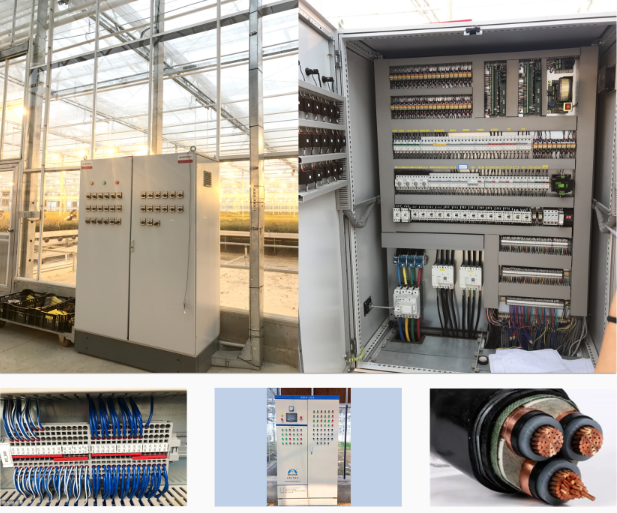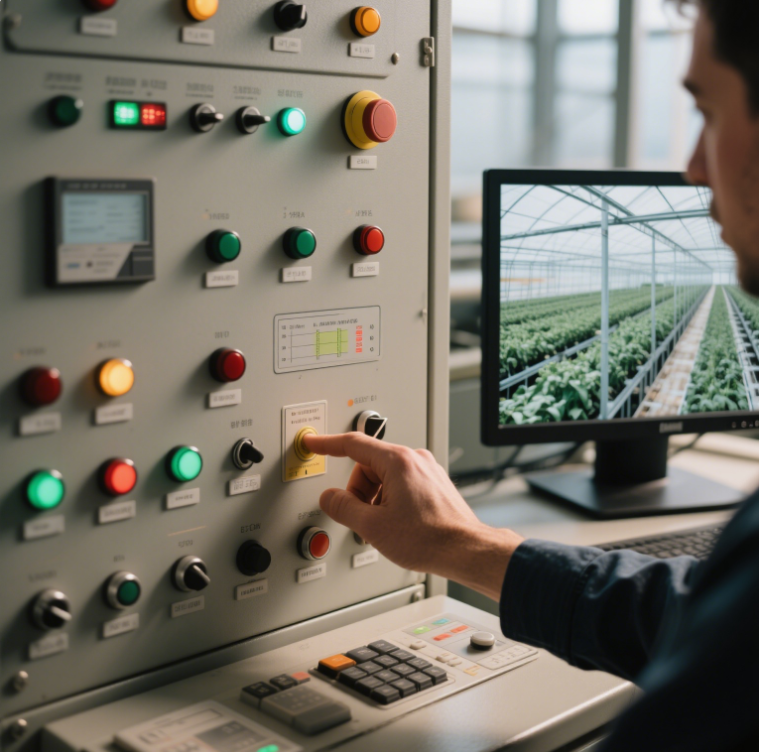Smart greenhouses are no longer just concepts in science fairs or tech expos. They're now growing fresh vegetables on city rooftops, helping farmers monitor crops from smartphones, and even changing how we think about food production.
As more people turn to sustainable and high-efficiency farming methods, smart greenhouses—like those designed by Chengfei Greenhouse—are becoming a game-changer in modern agriculture. But while they offer many exciting advantages, they also come with real-world challenges.
So, is smart farming truly the future? Let’s take a closer look.
✅ 10 Key Benefits of Smart Greenhouses
1. Grow Year-Round Without Worrying About the Weather
Controlled environments allow for steady, continuous crop production regardless of seasons. Tomatoes, leafy greens, or strawberries can be harvested all year.
2. Use Less Water, Grow More
Drip irrigation and water-recycling systems help reduce water usage by up to 70%. These systems are especially useful in dry or desert regions.
3. Fewer Pesticides, Healthier Food
Smart greenhouses monitor and limit pests naturally with sensors and light traps, reducing the need for chemical sprays.
4. Maximize Space with Vertical Farming
By growing crops on shelves, walls, or towers, even small areas can become highly productive. This is ideal for urban settings.
5. Control Taste and Quality
Adjusting temperature, light, and nutrients can improve crop quality—like making strawberries sweeter or tomatoes juicier.
6. Monitor Everything from Your Phone
Farmers can check real-time data like temperature, humidity, and soil levels through apps. Remote control makes farming more efficient

7. Turn Rooftops into Mini-Farms
In cities, greenhouses can be built on top of buildings. This reduces food transport time and supports local food systems.
8. Change Crops Easily Based on Market Needs
Smart systems allow for fast crop rotation and planting changes, which is helpful for market-driven production.
9. Use Clean Energy Sources
Solar panels, wind power, and geothermal heating are becoming common in greenhouses. This lowers energy costs and supports sustainability.
10. Attract a New Generation of Farmers
Smart greenhouses make farming more tech-driven and appealing to young entrepreneurs and students who love innovation.
✅10 Real Challenges in Smart Greenhouse Farming
1. High Initial Investment
Building a smart greenhouse can be expensive. Advanced materials, climate systems, and automation cost significantly more than traditional setups.
2. Learning Curve for Farmers
Operating sensors, software, and automation tools requires training. A lack of technical knowledge can lead to costly mistakes.
3. Limited Infrastructure in Some Areas
Remote locations may suffer from power outages or weak internet, which affects system reliability.
4. Maintenance and Repairs
Smart systems are complex. If one sensor fails, the entire environment may be affected. Repair costs and downtime can be high.
5. Vulnerability to Natural Disasters
While stronger than traditional greenhouses, smart systems can still be damaged by extreme weather like storms or heavy snow.
6. Not All Crops Are AI-Friendly
While common vegetables grow well, unique or sensitive crops like orchids or medicinal herbs still rely heavily on human expertise.
7. Cybersecurity Risks
Digital systems can be hacked or disrupted. Agricultural data needs better protection as systems become more connected.
8. Long Payback Period
It may take several years before a smart greenhouse becomes profitable. Initial costs can strain small farmers.
9. Uneven Policy Support
Lack of clear government policies or inconsistent subsidies can slow down adoption in some regions.
10. Misunderstanding Among Consumers
Some people still think greenhouse vegetables are unnatural or unhealthy. More education is needed to build trust.

Smart greenhouses aren't just a trend—they're part of a larger shift in how we grow food. With companies like Chengfei Greenhouse offering scalable, data-driven solutions, the future of farming looks more efficient, sustainable, and even a little high-tech.
Welcome to have a further discussion with us.
Email:Lark@cfgreenhouse.com
Phone:+86 19130604657
Post time: Jun-29-2025







 Click to Chat
Click to Chat